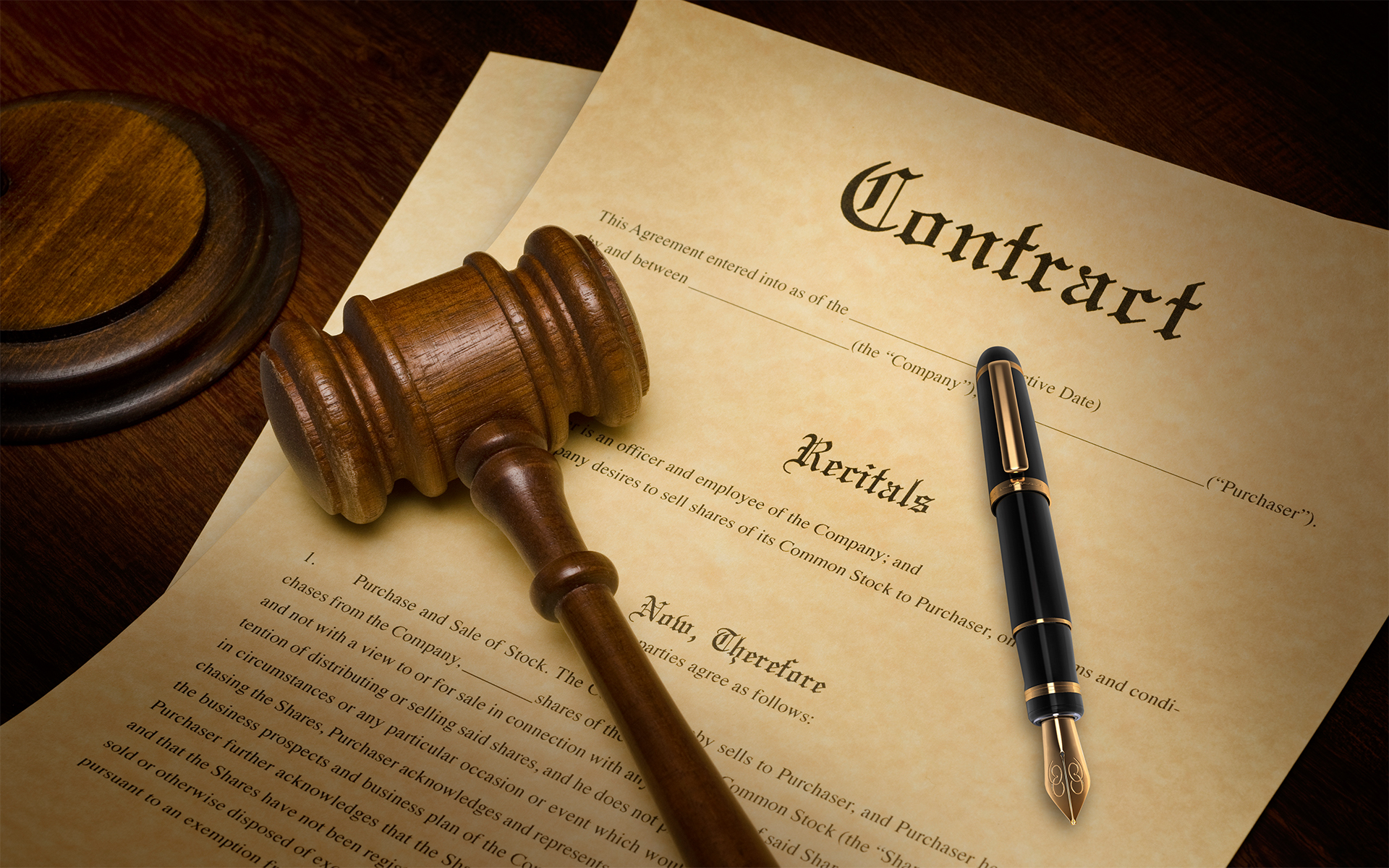Business Transaction Attorneys in Hollywood FL
Call Us: (954)727-8570
Levy & Partners and Business Transactions
Levy & Partners provides full-service counsel to public and privately held U.S. and foreign clients, ranging from start-up entrepreneurs to Fortune 100 corporations. Our services cover the wide range of challenges and opportunities clients encounter throughout the business life cycle, from formation to mergers and acquisitions, daily operations to protecting intellectual property, raising capital to securities law compliance, and corporate governance to international ventures and tax management. Businesses require legal counsel who not only have broad experience and skills in a wide variety of legal disciplines but who also have financial and practical business applications experience. If business disputes occur and cannot be resolved, our firm is ready to handle your specific commercial litigation issue.
Types of Business Transactions
PARTNERSHIP DISPUTES
At Levy & Partners, we understand the complex legal issues involved in business owner and partnership disputes within closely-held companies and business partnerships. Our attorneys have substantial experience in assisting business owners in resolving their internal disputes prior to litigation and once litigation begins.
BUYING & SELLING BUSINESSES
Making the decision to buy or sell a business requires a thorough review to ensure that your legal interests are protected. Contact Levy & Partners today for a consultation with an experienced business law and transactions attorney if you are considering selling or buying a business. We can save you money and time in the long run.
Commercial Litigation
Commercial litigation can cover a wide variety of civil and criminal law matters on both state and federal levels. Let us advise you of your legal rights and obligations to help save you money and legal hassles down the road.
Contracts
Levy & Partners, drafts, reviews and negotiates contracts. The Firm can provide the knowledge and experience of a large firm, while giving our clients the hands-on service and attention to detail that only a smaller firm can truly offer.
Corporate Transactions
We represent clients buying or selling their businesses or assets, including the sale of restaurants, liquor licenses, and businesses. We assist clients with the creation, governance, and sale of corporations and all other legal entities.
Partnership Disputes
At Levy & Partners, we understand the complex legal issues involved in business owner and partnership disputes within closely-held companies and business partnerships. Our attorneys have substantial experience in assisting business owners resolve their internal disputes in a wide variety of businesses including, restaurants, professional practices, small companies, service businesses, retail stores, family businesses and other enterprises both prior to litigation and once litigation begins.
Resolving Disputes While Preserving Business Value
Many of our clients who come see us about a partnership or closely-held business dispute wish to resolve their conflicts as amicably as possible so that they can maintain normal business operations. However, such clients also have concerns about the integrity of a business partner’s actions, perceptions of unfairness and issues of control and decision-making power must be objectively evaluated and addressed before that can happen. The attorneys at Levy & Partners can help you fully evaluate the situation and advise you of all of the options you may have to effectively address the issues with a focus on preserving the business value that you have worked so hard to build. Drawing upon our experience in this area, we are able to deliver creative, cost-effective solutions through negotiation and/or mediation.
Levy & Partners and Business Litigation
In those situations where out-of-court solutions are not feasible, you can have confidence in the attorneys at Levy & Partners that your interests are being protected by an experienced business litigation team. Our experienced attorneys will fight hard to ensure that your rights as a business owner are protected to the greatest extent under the law.
My business partner breached our contract. What steps should I take?
If you have been wronged under a contractual agreement, it is advisable to speak to an attorney as soon as possible. A breach of contract can cause immediate and imminent harm to a business. To minimize the risk of significant loss, you should act promptly. Quick action may protect information and preserve resources. During your first meeting with an attorney, gather copies of any applicable correspondence as well as any contract related to the dispute.
Do I need a business attorney or can I settle the dispute on my own?
There are certainly situations in which it is possible to settle a business dispute without help from an attorney. However, when negotiating on your own is ineffective – or when a dispute suddenly escalates it may be time to get outside legal help. Our firm offers a free consultation to discuss the specifics of your case. During this consultation, we will explain how we can help in your particular situation.
Can a business dispute be handled outside of court?
Each case is different, and many factors can influence whether this is possible. Many business disputes are settled outside of the courtroom. However, it is important that your case is prepared for trial – even if it never ends up in court. We never promote unnecessary business litigation. But we also do not encourage our clients to accept a proposed solution that is unsatisfactory to them. In each case we handle, we learn about our clients’ goals and help them identify the most effective way of meeting them.
Buying & Selling Businesses
Making the decision to buy or sell a business requires a thorough review to ensure that your legal interests are protected. At Levy & Partners, our attorneys are experienced in all aspects of the purchase and sale of a business including business partnership purchases, partnership dissolution, asset division, and corporate mergers.
Are considering selling or buying a business?
Allow an experienced business attorney from Levy & Partners to assist you with matters such as the following:
- Review, draft, or modify a purchase agreement to ensure that it is properly drafted and contains a non-compete clause that will protect your interests
- Ensure that the purchase agreement protects your business and that any promissory note or security agreement is drafted correctly
- Advise you as to all of the lease rights and restrictions for the business location
- Determine whether the business you are buying has complied with all local, county and state laws
- Ensure the location is zoned properly for the business you are buying
If you are buying a business: The main question is whether you will be purchasing the stock of the company or the company assets. If you are buying a the stock or membership interests of the existing company, a business lawyer can research and inform you of the entire corporate history. You may be inheriting certain risks such as responsibility for back taxes, debts, or civil liabilities.
If you are selling a business: How are you going to get paid? Should you finance the sale for the buyer over a period of years? How are you going to get all of the money you are entitled to? Our lawyers can provide you with the resources and advocacy you need to protect your rights.
There are two ways to sell a business owned by a corporation. You can sell the business through a stock purchase or through an “assets only” purchase.
+ Stock Purchase: You are selling all of the outstanding shares of stock to the buyer. The buyer is buying the business and all of its assets and liabilities.
+ Asset Only Purchase: The buyer is only purchasing the assets of the business. The buyer is not buying the liabilities. In an “asset only” sale, the selling corporation’s shareholders must approve the sale. In an “asset only” purchase, it is important to determine whether the corporation selling the assets is a party to any contracts limiting the ability of the corporation to sell its assets. For example, many equipment leases prohibit the sale or transfer of the equipment to a new owner. Most commercial leases will not allow the purchaser to simply take over the commercial leased space where the selling corporation is located.
Contact Levy & Partners today for a consultation with an experienced business law and transactions attorney if you are considering selling or buying a business.
Do I need a buy-sell agreement?
Any business with more than one shareholder or owner should consider a buy-sell agreement. If a shareholder or owner dies, divorces, becomes disabled, or is removed from employment, the business needs to be adequately prepared on what to do. A buy-sell agreement will provide a plan of action and minimize any problems that may pop up. Additionally, a buy-sell agreement can contain provisions to help limit who may become an owner of the business.
What Should I Do When Preparing to Sell My Business?
- Update financial records: Update and organize the financial records of the company.
- Hire an agent: An agent can help you advertise the fact that your company is for sale and get offers for your business. This individual will also be able to advise you of whether certain offers that come in are worth consideration.
- Value the business: The value of your company can be determined from the financial status (profits, etc.) of your company and its reputation.
Speak with a lawyer: An attorney can ensure everything is in order for the sale. The attorney will also help you with any sales contracts.
What Should Be Included in the Sales Agreement?
Sales agreements and sales contracts for a sale of a company need to be full of details and describe the sale of the company. When you draft a sales agreement, these legal terms should be included:
- A detailed description of the goods and services you are selling with your corporation;
- The total payment due along with the time and manner of payment;
- A clause stating that both parties must agree and approve for any changes to the agreement in writing;
- How long the buyer has to inspect the building the company resides in;
- The state whose laws will govern the agreement;
- Financial arrangements, such as how the buyer intends to pay for the company;
- Description of the real property (real estate, buildings, etc.), if any, and the personal property (machines, furniture, etc.) to be transferred;
- The minutes of the corporation organization authorizing the sale, if the business keeps minutes; and
- All warranties of the seller.
Drafting business agreements can be complex and tricky. Hiring an experienced contracts lawyer is important to make sure all the necessary terms of the contract are included in the sales agreement.
Should I Consult an Attorney When Buying or Selling a Business?
Business acquisition and selling a company involves many negotiations and contracts. A business attorney can assist you in the negotiation process to help you get what you want for your future business. An attorney can also help you sift through financial documents to determine what is relevant to the sales transaction. A lawyer can also arrange the real estate sales process, should you ultimately wish to buy or sell the business property.
Commercial Litigation
Commercial business litigation simply refers to any type of legal conflict relating to business issues. When matters become highly contentious between two or more businesses or corporations and one company takes legal action against the other, it is referred to as commercial litigation. Commercial litigation is a broad term that refers to all business conflicts, whereas business law itself is distinct in that it also covers the drafting of contracts and agreements (matters that may one day lead to a dispute). In simple terms, commercial litigation typically involves one or more businesses locked in a dispute over money or some other type of property.
Common examples of commercial litigation include the following:
- Breach of Contract –A breach of contract can involve purchases and sales of securities, real estate transactions, agreements to provide goods or services, or mergers and acquisitions.
- Employment Disputes – Disputes over health and pension benefits, overtime, age, race, gender or religious discrimination, all of these would fall under the category of employment disputes.
- Tortious Interference with Contract –This occurs when a third party successfully interferes with or otherwise prevents the performance of an agreement between two parties.
- Breach of Fiduciary Duty – iduciary duty is an obligation to act in the best interests of another party or entity. For example, a corporation’s board member will have a certain fiduciary duty to the shareholders, while a trustee has a legal obligation to the beneficiaries of an estate. It’s not uncommon for people in a position of trust such as corporate officers, directors, agents, trustees or partners to violate that trust and their fiduciary duty to the company they were working for or with.
- Fraud and Deceptive Trade Practices – Any type of fraudulent activities and misrepresentations in business transactions.
- Disputes Over Non-Compete Clauses – These disputes involve non-competition, non-solicitation, and non-disclosure agreements by former business associates, owners and employees. When there is a breach in one of these clauses, it may result in a lawsuit that includes a request for emergency relief by means of a pre-trial injunction or a restraining order.
- Antitrust Violations – Antitrust violations cover price discrimination, price fixing conspiracies, monopolizing a market, and conspiracies to allocate customers, or divide territories or otherwise control and prevent fair competition in the marketplace.
- Violating Intellectual Property Laws – Violations against intellectual property laws including: patents, copyrights, trademarks, trade dress, service marks and also trade secrets.
- Debt Collection – Collecting various types of debts such as guaranty agreements, promissory notes, and mortgages and deeds of trust.
Other types of commercial litigation include: partnership disputes, Civil RICO, ERISA, business dissolution, class actions, franchise issues, and shareholder issues among others.
Why Hire a Commercial Litigation Lawyer?
Commercial litigation is very specialized and often complex. Commercial litigation can also cover a wide variety of civil and criminal law matters on both state and federal levels. An experienced attorney can advise you of your legal rights and obligations to help save you money and legal hassles down the road. A qualified attorney can also help by giving you timely advice that can save you from costly litigation.
What is Involved When Litigating a Commercial Litigation / Business Issue?
While each commercial litigation issue varies, in general, commercial litigation follows all the steps involved in a civil lawsuit-getting an attorney, filing motions, engaging in settlement negotiations, trial, and possibly appeal.
What is a Breach of Contract?
A breach of contract is a failure to fulfill the duties under the contract terms. A contract can be breached in the following ways: one party does not perform as promised; one party does something that makes it impossible for the other party to perform the duties under the contract; or one party makes it clear that they do not intend to perform the contract duties.
Contract Drafting, Review & Negotiation
One of the practice areas at Levy & Partners is business transactions and corporate law. The Firm can provide the knowledge and experience of a large firm, while giving our clients the hands-on service and attention to detail that only a smaller firm can truly offer. Our lawyers regularly go beyond the customary services, tailoring their work to the specific needs of each client.
Our services include forming a business and addressing the initial corporate formalities to the more complex transactional matters, sometimes involving international parties located in several different jurisdictions overseas. We have drafted an expanding number and variety of commercial contracts, including employment and severance agreements, leases, sale of business transactional documents, private placements, shareholder agreements, employment agreements, stock pledge agreements, security agreements, corporate resolutions, operating agreements and restrictive covenant agreements. Our clientele in this practice area is diverse and spans from sophisticated high net worth investors to small businesses.
Contract and Agreement Preparation
We advise clients regarding all types of business and commercial agreements. In addition to providing assistance in the strategic negotiation of commercial contracts, our attorneys review and carefully draft most types of business agreements, including, but not limited to, the following:
- Purchase/Sale Agreements
- Employment and Severance Agreements
- Nondisclosure, non-circumvention, non-compete, and non-solicitation agreements
- Shareholder and LLC Operating Agreements
- Vendor/Customer Agreements
- License Agreements
- Distribution Agreements
- Royalty Agreements
- Commercial and Residential Lease Agreements
- Non-Competition Agreements
- Confidentiality Agreements
- Joint Venture Agreements
- Consignment Agreements
- Employee handbooks
- Buy/Sell Agreements
- Pledge and Security Agreements
- Promissory notes, mortgages and UCC filings
- Invoice terms and conditions
- Business Transactions and Issues
We also provide a wide variety of services to our business clients including, for example, representation in the areas of:
- Buyer or selling assets or businesses
- Acquisition of bankrupt and distressed assets or businesses
- Securities law compliance
- Partnerships, joint ventures, and partner or shareholder relations
- Directors’ and officers’ liability
- Corporate formalities including operating agreements, meeting resolutions and corporate bylaws
- Corporate Governance
- Corporate workouts
We invite you to contact us regarding our business transaction and agreement drafting by filing out the contact form on this page.
Are contracts required to be in writing to be enforceable?
In some cases, a verbal agreement may constitute a binding contract, but in other situations, an agreement must be reduced to writing to become a binding contract. “Statutes of frauds” identify those types of contracts which must be in writing. For example, in Wisconsin contracts for the sale of real estate, leases for real property with a term of more than one year, real estate commission agreements, certain contracts that by their terms are not to be performed within one year, and contracts to pay another person’s debts, must generally be in writing. However, there are exceptions to the statute of frauds rules which may apply. The statute of frauds rules vary from state to state. Equitable remedies may in some cases be available to enforce an agreement that fails to comply with the applicable statute of frauds. Even in situations where a verbal agreement could be enforceable, the best practice is, in most cases, to reduce the agreement to writing to confirm the parties’ understanding and acceptance of the terms.
What are the minimum requirements to form a contract?
Every contract requires three basic elements: an offer, acceptance of the offer, and consideration. “Consideration” can include the payment of money, providing goods or services, or the mutual exchange of promises.
Are some contracts unenforceable or void?
Contracts in some cases may be found to be unenforceable or voidable due to misrepresentation, illegality, unconscionability, duress, undue influence, or incapacity of one of the parties.
When does a breach of contract occur?
A breach of contract generally occurs when a party fails to perform its obligations under the contract and such failure to perform is not excused by the non-breaching party. Examples of a breach of contract include a failure to pay for goods or services, providing defective merchandise, or failing to deliver goods or services under the time frame specified in the contract. A breach may also occur if a party violates a covenant or other term in the contract.
Corporate Transactions
Our corporate lawyer represents clients buying or selling their businesses or assets, including the sale of restaurants, liquor licenses, and businesses. We assist clients with the creation, governance, and sale of corporations, limited liability companies, partnerships, limited partnerships, and all other legal entities. We have an extensive collection of corporate documents which can be tailored to a client’s specific needs. Corporate lawyers in our team have vast experience and attention to details.
Our transactional lawyers are experts at drafting contracts, joint venture agreements, leases for residential and commercial properties, and a vast array of business transactions. Our ultimate goal is to close the deals presented by our clients despite the obstacles that may arise. Often our transactional lawyers will introduce our clients and business contacts to one another to facilitate transactions or accommodate a particular client’s needs. We bring knowledge and strength to the bargaining table to achieve maximum results for our clientele.




